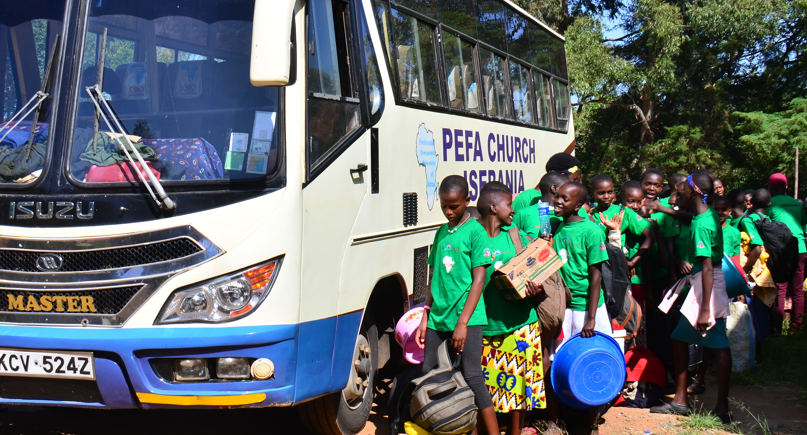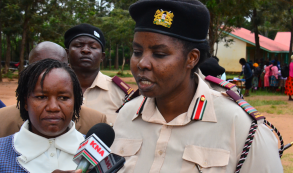It was song and dance at the Taranganya Girls Boarding Primary School as 184 girls who had been held for the last five weeks after escaping VFemale Genital Mutilation ( FGM )were finally released to go back home.
Further, the excitement was also experienced at Kubweye Girls Secondary School where another 180 girls were harbored after escaping the vice.
Filled with a lot of vigour to meet their long missed family members, the girls could not hide their joy after getting a chance to meet with their loved ones and in addition to the fact that ‘cuttings’ were done away with and it was now safe to go home.

15-year-old Miriam Bokhe recounts that despite being visited by both her parents, going back home was the best feeling ever.
This however does not beat the fact that the girls gained a lot during their time at the rescue camps.
“I have enjoyed my stay here. I have learnt a lot about the dangers of FGM and also gained other personal skills like baking cake and others,” Bokeh said.
Young girls got a rare opportunity to learn various skills that kept them busy hence making them feel less of being rescued from the unforgiving world they lived in at the Taranganya rescue center.
In addition, they received sensitization on the dangers of FGM on girls and the future repercussions associated with the cut.
“We are now aware that once you are cut, you risk losing a lot of blood when giving birth and also can have difficulties at the same time,” narrates Alice Mwita, a 12-year-old girl from Kuria West.
However, in a number of cases girls were uncertain of the dynamics back home, how their parents would receive them, or if their parents would welcome them home as they had fled for rescue from female circumcision.
On her part, Elizabeth Nyawiri, a 15-year-old student from Guitembe secondary school, cried that her parents would not accept her back, nor would they take her back to school as she had gone against their wish.
Elizabeth had not spoken to her parents for the period she had been at the camp and she was worried that the situation would be welcome on her side.
She feels afraid to be taken back there and opted to go to the police instead, where her parents would be called over to sort the issue.
A number of girls received no contacts or any visits from home during the period at the rescue camps.
This made them feel the anger or disappointment their parents must have been feeling for them, going against cultural norms.
Rescues camps facilitators also experienced tough times as some parents were often called to mock and ridicule their efforts towards eradicating the vice.
Tobias Marwa of Zinduka program and a coordinator for the project warns that in extreme cases where parents reject their girls the law will be followed and such parent shall be reprimanded.
He said children below 18 years are under protection of the government and whenever there will be any act that goes against their safety or protection, the law will take its course.









